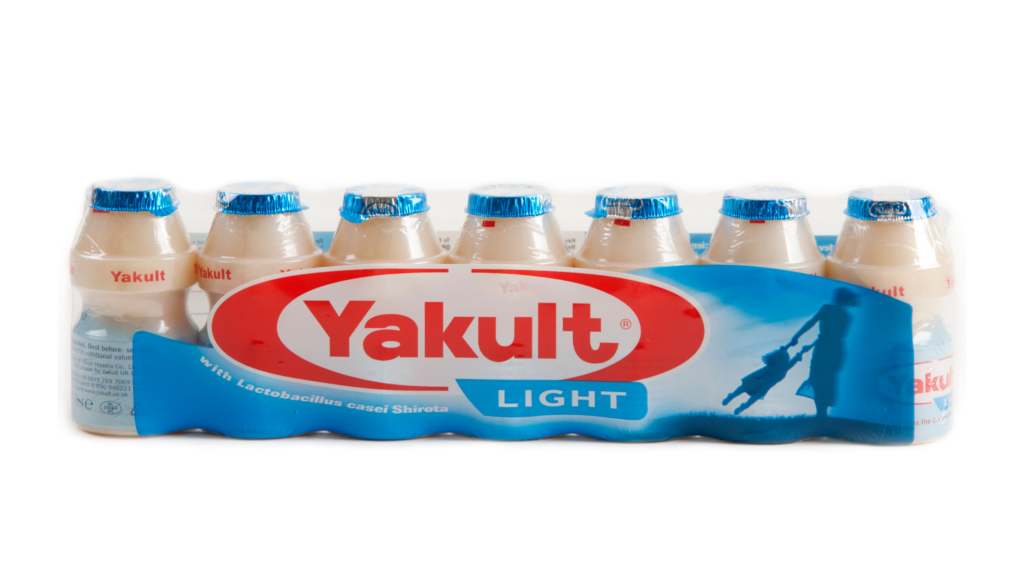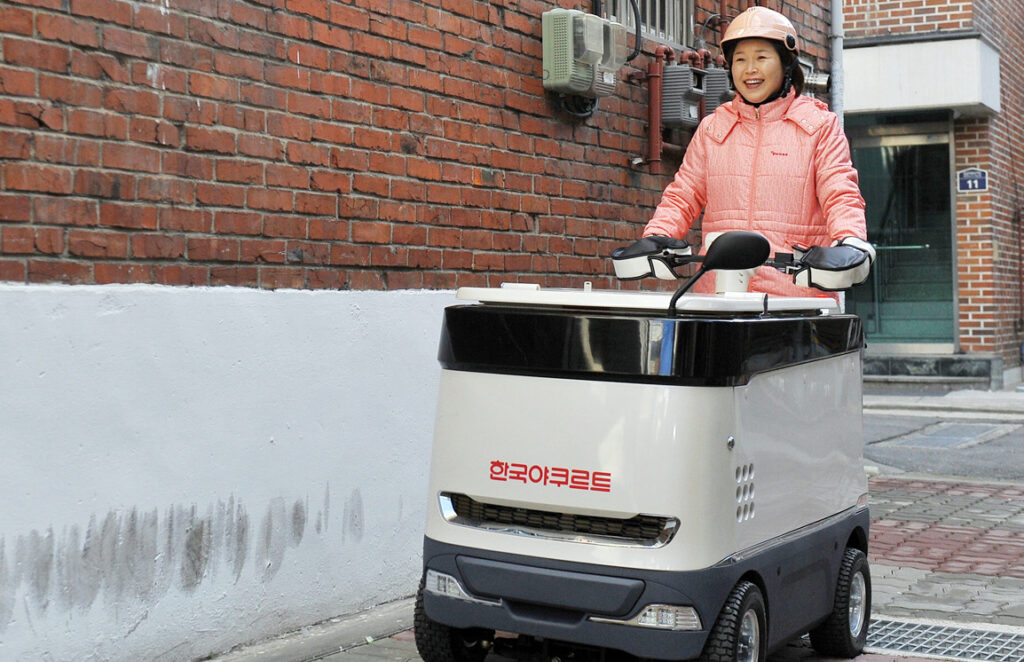It is no secret that Koreans love probiotics. Kimchi is eaten daily – often twice or three times per day – and contains a wealth of probiotics to help keep your gut healthy and happy. Besides kimchi, yogurt also naturally contains a lot of probiotic microorganisms. However, Koreans also like adding probiotics to food, and even to skincare! There are many probiotic cleansers and creams on the market, as they are said to help balance and restore your microbiome. But even more popular than that, are probiotic drinks.
You have probably received a probiotic drink at a Korean restaurant, something like Yakult! There are many more drinks out there, and they are a huge part of Korea’s culture. But, why are they so popular? And what are some of the best Korean probiotic drinks out there?

Contents
What Are Probiotics?
A quick refresher: probiotics (유산균 in Korean) are live microorganisms that have various health benefits, mostly related to the gut. They are also called lactic acid bacteria, or lactobacillus. In your entire gastrointestinal system, there are billions of microorganisms that keep it healthy and happy. An unhappy gut can lead to constipation, diarrhea, and a general unwell feeling. Your gut can become unhappy when your microorganisms are out of balance, due to eating too much unhealthy food, drinking alcohol, stress, and other external factors. By ingesting probiotics, you can help restore balance in your gut.
There are fermented foods that contain probiotics naturally, such as kimchi and yogurt. Often, live probiotic cultures are added to foods to fortify them. This is mostly done with yogurt drinks. Probiotics can also be taken as a supplement, or as a powder.
Why Do Koreans Like Probiotics?
Many countries have probiotic foods, think of Activia yogurt for example. However, the love for probiotics runs deeper in Korea than in most countries. The size of the probiotic market in Korea is 1 trillion won a year. Nowhere else can you see as many probiotics drinks, yogurts, supplements, and skincare products. Why? One simple answer could be that there is a long culture and tradition of consuming fermented foods, like kimchi. These naturally contain probiotics.
Another explanation could be that in general, Koreans have digestive issues that can lead to constipation, according to research. Doctors often recommend people ingest probiotics to help their gut.
However, these two factors alone do not explain why probiotics are so popular in the Korean market. A more accurate answer is smart marketing. Many probiotic beverage companies, most notably ‘hy’ know as Yakult, have invested heavily in their marketing to promote probiotic drinks as a daily must to help with digestive health.
What Are Korean Probiotic Drinks?
Korean Probiotic drinks are usually yogurt or milk-based drinks to which live cultures of probiotics have been added. They are often small drinks, around 100 milliliters max, which are consumed at the end of a meal, or during breakfast. Many restaurants that serve cheaper food – like school cafeterias – often give them as some kind of dessert. You can also buy limited items of Korean probiotic drinks at convenience stores, or simply in the supermarket.
There are often many different flavors of drinks: simple yogurt flavor, strawberry, peach, blueberries, etc.
Best Korean Probiotic Drinks
There are so many Korean probiotic drinks out there, but one is by far the most famous: Yakult.
1. Yakult
Although originally founded in Japan in 1935, Yakult is now completely part of Korean culture. Yakult Japan established a Korean branch in 1969. It is a small milk-based drink that contains live Lactobacillus Paracasei Shirota, which promotes a balanced and healthy gut. It has a very sweet, milky taste and was made especially so that kids and adults alike can enjoy the beverage.
In Korea, Yakult is hugely popular. It comes in the flavors original, and light – which contains less sugar – and can be bought at every single supermarket. Since its establishment in Korea, Yakult has sold over 50 billion bottles in the country. Since then, ‘hy’ has also released a sparkly Yakult drink and iced Yakult.
Yakult is a huge part of the daily culture in Korea. There are Yakult cocktails, which mix soju with Yakult to create a refreshing and sweet drink. But beware, there is quite some alcohol in the drink! Yakult is also seen on many street corners, as it is sold by the so-called ‘Yakult Ajummas’. More on them below…

2. Will
Will (윌) is another well-known Korean probiotic drink. It contains strains of probiotics that are specially made to target the helicobacter pylori bacteria. Helicobacter is a common bacteria that lives in your stomach lining. In many people, it does not cause symptoms, but it can cause gastritis, pain in your stomach, and other discomforts. The Will probiotics drink claims to help balance the stomach to create a healthier stomach environment in which Helicobacter will cause less discomfort.
The interesting thing about the Will probiotic drink is that it is aimed at the stomach, rather than at the intestines. Probiotics have good effects on the whole gut, the stomach included, but are usually marketed targeting the intestines. Will has celebrated its 20th anniversary recently and has been a well-known brand since it launched. The drink is bigger than Yakult and marketed as a yogurt-type drink.
3. Yoplait Doctor Capsule
Yoplait (요플레) is a popular Korean yogurt brand that produces all kinds of yogurt – plain, Greek, strawberry-flavored, and so on. It comes as no surprise that Yoplait has also created their own Probiotic drink, called Doctor Capsule (닥터캡슐). This probiotic drink contains probiotic strains that have a 1000 times higher survival rate. This is very important because sometimes the strains of probiotics added are not strong enough to survive the aggressive stomach acid. However, Doctor Capsule was specifically made so that all the good microorganisms can withstand the harsh conditions in the stomach and are delivered safely to your intestines.
4. Activia
Although technically Activia is not a Korean brand, the Activia probiotic drinks are widely available throughout Korea. Activia yogurt is known all over the world for its great benefits to your gut. They produce small yogurt cups, but also sell yogurt-based probiotic drinks! You can buy these at any convenience store or supermarket. The drinks are quite big and very yoghurty, so they are more of a snack than a health drink.
Korean Yakult Ladies
We already mentioned it before: the Korean Yakult ladies. These women are an integrated part of Korean probiotic drink culture, so we cannot leave them unmentioned. The Korean Yakult ladies (also known as Yakult Ajummas) sell Yakult and other probiotic drinks and yogurt on the street and door-to-door using motorized carts.
The Yakult Ajummas were originally part of an aggressive marketing campaign by Yakult Korea (Recently renamed to ‘hy’) when they entered the market. In the beginning, many Koreans believed that lactic acid was bad for the body. ‘hy’ used the Yakult Ajummas to sell Yakult in a door-to-door sales campaign. The Ajummas were local women that knew the neighborhood and were respected for their knowledge. This led to a huge increase in the popularity of Yakult.
The Yakult Ajummas have since remained an integral part. Although now they are officially called Fresh Managers, people still lovingly call them Yakult Ajummas. Where previously the Ajummas used to travel the neighborhoods by foot, they now go around using small electric carts, called CoCos (cold & cool). These carts are basically huge fridges that the ladies can drive around to deliver Yakult and yogurt all around the neighborhood. They often deliver to companies, stores, and schools, and also have dedicated points in the neighborhood where they stand and sell during the day.
Currently, there are around 11,000 Yakult Ajummas working in South Korea, and they are widely recognized: they wear beige clothes, a little helmet, and are always near their beige Yakult refrigerated cart. They are often very cheery, open people that make small-talk with the neighbors while delivering yogurt.
Because they travel the neighborhood so widely, the Yakult Ajummas also have a social function. They often call upon the elderly of the neighborhood, checking in on them and making sure they are okay. This helps alleviate loneliness among the elderly population as well, as they often take the time to sit down for a little chat. Finally, the Yakult Ajumma program offers opportunities for women with family to work and contribute to the household, helping them become more economically independent.

